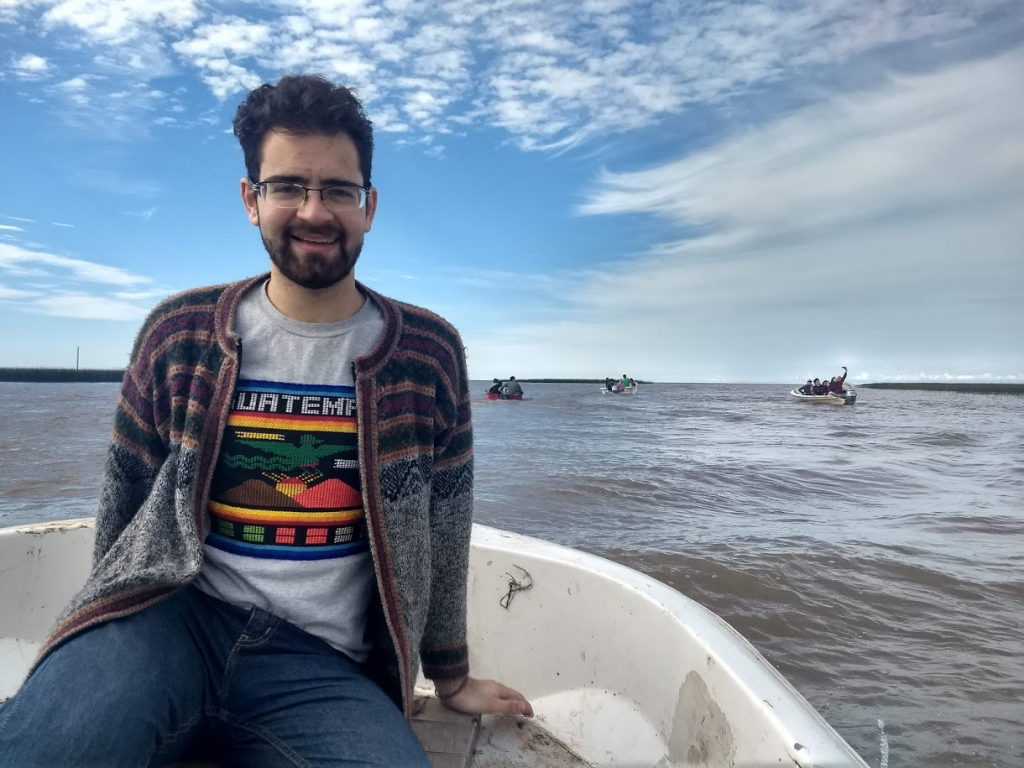Student snapshot: Jonah Kone in Argentina
June 11th, 2019 | SIT Study Abroad

SIT Program: Spring 2018 Argentina: Transnationalism and Comparative Development in South America
Home Institution: University of Puget Sound in Tacoma, Washington
Major: International political economy: the study of where political institutions and economic development intersect, with an emphasis on anthropology and sociology and anthology
What motivated you to study abroad?
I took an anthropology course — the Cultural Politics of Global Development — that focused on the anthropological and sociological construction of development economics and how that effects indigenous and farming communities. It had a lot of focus on the academic/epistemological communities formed in Buenos Aires in the late ’50s and ’60s starting with the Economic Commission for Latin America. I started reviewing [my university’s] program list and the SIT program seemed super relevant.
Was there anything that surprised you about this program?
Instead of having three or four structured classes with the same professor, we had rotating perspectives from a variety of disciplines. In our course on development we had five different professors come in for three or four class periods. So, you definitely got a broader disciplinary approach but not as much exposure to one professor.
Was that a plus or a minus?
I think both. I really enjoyed the parts where we talked about history especially because I’d never been exposed to economics history.
Was the comparative nature of this program attractive to you?
I think our field visits in Brazil were better because we split into groups; in Paraguay and Uruguay most of the field visits were done with the entire program, so there were instances where some were more interested than others, but overall I really enjoyed the structure.
What was the most memorable thing about your experience?
The week in Rio definitely stands out — we were the pilot group and the program did a good job taking us off the beaten path, especially for American students. That also influenced my final research doing ethnographic work in the northwest suburbs because I didn’t know those areas existed before coming to Buenos Aires.
Can you talk more about your research?
I focused on this one fishing community in the Tigre River Delta where a social conflict had arisen due to a private real estate firm that was trying to build a gated housing community where 30 islander communities had lived. A social movement had popped up and an occupation where they would hold camp-out information sessions every month. I was able to go to one and listen to them give presentations on the occupied land and learn about the different coalitions that were forming. I was focused on one local social movement but it was reflective of how development is affecting this area.
Did you continue to pursue any of that research when you returned home?
I have focused my academic studies on land tenure in Latin America overall, so I reviewed some of that literature in a few other projects. In an environmental politics class I wrote about other wetlands conservation projects happening in Argentina. More recently, we had a convention of environment clubs on campus and I gave a presentation there about land tenure issues overall.
You’re graduating this year. What’s next for you?
I want to try and find a real job for a least while before grad school. I’m considering AmeriCorps in West Virginia, working on land tenure issues. I’m applying for internships … I definitely want to go with more broad international environmental policy, especially within indigenous communities.
Do you have a career path in mind?
My emphasis has been on epistemological communities outside the U.S. and on de-northernizing my academic experience — the theoretical and academic framework that South American universities use ... I like going the international development route. I’ve also been drawn to local cooperative movements. There’s an interesting agricultural collective formed in Bellingham [Washington] by undocumented immigrants.
I definitely want to go to grad school in the next few years. I’m looking at human geography at a Latin American university. I’m toying with the idea of the National Autonomous University of Mexico or the Federal University of Amazones in Brazil or Rural Sociology in Porto Alegre.
